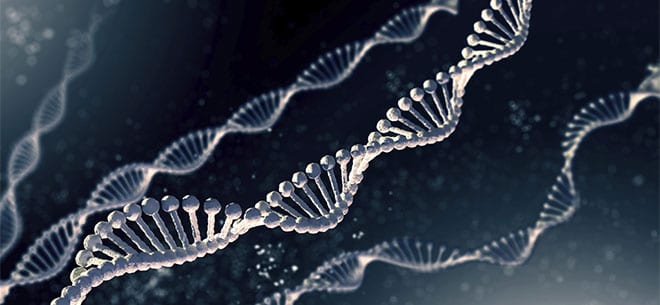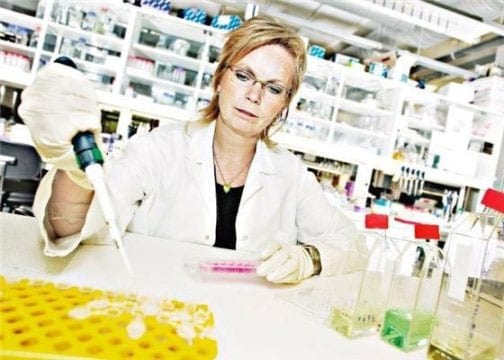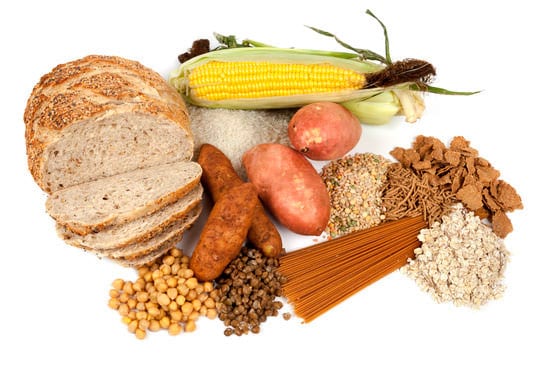
Diet affects gene expression
What we eat affects our immune system and our genes. Research in Norway showed that a diet with excess carbohydrates activates certain genes involved in lifestyle diseases, such as type 2 diabetes, cardiovascular disease or even certain forms of cancer.
If we go a little further and enter the field of nutrigenomics, we can find out what kind of food is good for us according to our genes, how much of each nutrient we need according to our genetic load. This is not unrealistic, it is simply a matter of knowing how a person should be fed in relation to their genetics

If our genes could speak, they would tell us that to be healthy we should eat the following: one third protein, one third fat and one third carbohydrates.. This is what genetic research at the Norwegian University of Science and Technology (NTNU) found in 2011.
NTNU researchers Ingerid Arbo and Hans-Richard Brattbakk fed overweight people different diets, and studied the effect on gene expression. Gene expression refers to the process in which the DNA sequence information of a gene is translated into a substance, such as a protein, which is used in the structure or function of a cell.
"We have found that a diet with 65% of carbohydrates, which is often what the average Norwegian eats at some meals, causes a number of genes to work overtime," says Berit Johansen, professor of biology at NTNU.. She supervises PhD students on the project and has been conducting research on gene expression since the 1990s.

"This not only affects genes that cause inflammation in the body, which was what we originally wanted to study, but also genes associated with the development of cardiovascular disease, some cancers, dementia and type 2 diabetes - the main lifestyle-related diseases," he says.
Common dietary advice and chronic disease
"Both low- and high-carbohydrate diets are wrong," says Johansen. "However, A low-carbohydrate diet is closer to a proper diet. A healthy diet should consist of no more than one-third carbohydrate (up to 40 percent of calories) at each meal.Otherwise we stimulate our genes to initiate activity that creates inflammation in different tissues.
Scientists call this inflammation metabolic inflammation: the skin is slightly redder, the body stores more water, we are warmer, and we are not at our best mentally.
A powdered diet
Johansen and his team conducted two studies. In the pilot study (28 days) five obese men ate normal food, while in the second study, 32 men and women (mainly students) who were slightly overweight ate especially powdered food.

"We wanted to know exactly what the subjects were getting in terms of macro- and micronutrients," says Johansen, "A tomato does not contain a consistent amount of nutrients, or antioxidants, for example. We had to have an accurate accounting of nutrients. That's why we chose powdered diets for the main study..
Solving the control problem
Dietary studies comparing different diets with different amounts of fat are often criticised on the grounds that it is the difference in the amount of omega-3 fatty acids that causes the health effects, not the rest of the food intake.
The researchers addressed this problem by having the same amount of omega-3 and omega-6 in both diets, even though the amount of fat overall was different in the diets tested. The researchers also avoided another common problem: natural variation in gene expression among humans.
"Each of our study subjects was able to be their own control person". Johansen explains that "Each subject was allowed to be on both diets, with a one-week break in between, and half were started on one diet while the rest were started on the other diet.
Blood tests were performed before and after each diet period. All measurements of gene expression changes were performed so that the difference in gene expression for each individual was compared to that individual alone. The results were compiled.

Johnson says the studies led to two conclusions important. One of them is the positive effect of many meals during the dayand details on the quality and composition of the components of an optimal diet, including omega-6 and omega-3 fatty acids. The second is that a diet rich in carbohydratesregardless of whether or not a person overeats, has implications for genes affecting lifestyle diseasesshe says.
A way to measure genetic temperature
Throughout the study, the researchers examined the extent to which various genes were functioning normally or overtime. An aggregate measure of the results of all this gene activity is called gene expression. And it can almost be considered a measure of the genetic temperature of the organism's state of health.
"And it's not that there is a gene for inflammation, for example. What we are looking for is whether there is a group of genes that work overtime. In this study we have seen that a whole group of genes that are involved in the development of inflammatory reactions work overtime as a group.
It wasn't just that inflammatory genes were putting in extra time. Some groups of genes that stood out as overactive are linked to the most common lifestyle diseases.
Genes that are involved in type 2 diabetes, cardiovascular disease, Alzheimer's disease and some forms of cancer respond to diet, and are up-regulated, or activated by a carbohydrate-rich diet," says Johansen.
Johansen is not a cancer researcher, and she is not claiming that it is possible to eliminate the risk of a cancer diagnosis through diet. But she thinks it is worth pointing out that genes that we associate with disease risk can be influenced by diet.

"We need more research," Johansen adds. "It seems clear that the composition and quantity of our diets may be key in influencing the symptoms of chronic disease. It is important to distinguish between diet quality and quantity, both of which clearly have very specific effects."
Arms race in the corps
Johansen argues that diet is key to controlling our genetic susceptibility to disease. In choosing what we eat, we choose whether we will provide our genes with the weapons that cause disease. The immune system functions as an authority and policing system for the body. When we consume too many carbohydrates and the body is triggered to react, the immune system mobilises its force, as if the body is being invaded by bacteria or viruses.
"Genes respond immediately to what they have to do. Insulin is likely to control this arms race," says Johansen. "But it's not as simple as blood sugar regulation, as many believe. The key is insulin's secondary role in other mechanisms. A healthy diet consists of eating certain types of food so that the body's need to secrete insulin is minimised.. Insulin secretion is a defence mechanism in response to excess glucose in the blood, and whether that glucose comes from sugar or non-sweet carbohydrates, such as starches (potatoes, white bread, rice, etc.), it doesn't really matter.
Avoiding the grease trap
The teacher warns that be sure to eat carbohydrates, proteins and fats in five or six smaller meals, not just the main meal, and at dinner.
"Eating several small and medium meals throughout the day is important. Don't skip breakfast and don't skip dinner. One third of each meal should be carbohydrate, one third protein and one third fat. That's the recipe for keeping inflammatory and other disease-enhancing genes in check. "Johansen explains.
Change is rapid
Johansen has some words of encouragement, however, for those of us who have been eating a high-carbohydrate diet. "In just six days the gene expression of each of the volunteers was changed," he says, "so it's easy to get started. But if we want to reduce our likelihood of lifestyle disease, this new diet has to be a permanent change".
It is clear that the recommendation must be that people change their eating habits. Otherwise, an increasing number of people will be affected by chronic lifestyle diseases.
Genes, the fountain of youth
"It was interesting to see the reduction in gene activity, but the best thing was to see which genes were involved. One set of genes is related to cardiovascular disease. These genes were reduced in response to a balanced diet, as opposed to a carbohydrate-rich diet," he says.

Foodgen: eating according to our DNA
A step further can be taken with nutrigenomics, so that we not only avoid activating genes in our diet that lead to diseases due to our way of life, but also eat what we need according to our DNA.
This can be achieved and it is real. Through a genetic study called FOODGEN® we analyse 20 genes related to a person's genetic needs for vitamins, minerals and essential fatty acids. It is a once-in-a-lifetime test because genes do not change. After the test, the result gives us the guidelines for a personalised diet that avoids the activation of genes related to pathologies and is essential for maintaining an optimum level of health and healthy ageing in the future. We should eat according to our genetics and nowadays it is easy and very economical.
Source: sciencedaily.com


1 thought on “¿Cómo responden los genes a nuestra alimentación?”
Hi, I loved your article, I am writing a thesis on nutrition and ageing with quality of life, I would like to know if I can have an interview with one of your specialists, thank you very much.
Comments are closed.